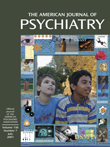Unusual Book Review
To the Editor: It was a pleasant surprise to see the review by Stephen A. Young, M.D. (1), of I Know This Much Is True by Wally Lamb (2). This is one of the 10 best books that I have ever read. However, after reading the review, I was moved to write this letter. Dr. Young was concerned about Lamb’s negative portrayal of psychiatry and the lack of a caring and empathic psychiatrist, while a social worker and psychologist are viewed as empathic and skilled patient advocates. The psychologist also turns out to be a compassionate and wise psychotherapist.
Perhaps Dorothy Allison (3) was accurate: “Literature is the lie that tells the truth, that shows us human beings in pain and make us love them, and does so in a spirit of honest revelation.”
In part, psychiatry has brought its woes on itself. It did not heed the warning made by Engel (4) in his landmark article on the dangers of a limited biological focus. It seems that psychiatry has gone the way of the rest of medicine and dropped its emphasis on the psychosocial and psychotherapy. This development, coupled with managed care, has yielded large numbers of psychiatrists who prescribe medications, not psychotherapy. Former APA President Allan Tasman lamented that “the art of talk therapy is in danger of being lost” (5). He has also maintained that not only do current residents disdain talk therapy; they do not know how to do it. Furthermore, he added that young psychiatrists lack empathy. Dr. Tasman has done a lot to counter this ominous development. For example, last year’s APA annual meeting theme was “The Doctor-Patient Relationship” and its healing nature. He also catalyzed the reintroduction of training in psychotherapy. Starting in January 2001, psychiatric residency directors have to certify that each resident has at least some basic competency in psychotherapy. Perhaps in the future, psychiatry and psychiatrists will fare better in novels about psychiatric patients.
1. Young SA: Book review, W Lamb: I Know This Much Is True. Am J Psychiatry 2000; 157:1351Link, Google Scholar
2. Lamb W: I Know This Much Is True. New York, HarperCollins, 1999Google Scholar
3. Allison D: Skin: Talking About Sex, Class, and Literature. Ithaca, NY, Firebrand Books, 1994, p 175Google Scholar
4. Engel GL: The need for a medical model: a challenge for biomedicine. Science 1977; 196:129-136Crossref, Medline, Google Scholar
5. Arehart-Treichel J: Drugs no substitute for psychotherapy, Tasman says. Psychiatric News, June 16, 2000, pp 18, 34Google Scholar



